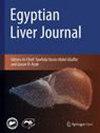Prognostic scores for predicting clinical outcomes in upper gastrointestinal bleeding
IF 0.7
Q4 GASTROENTEROLOGY & HEPATOLOGY
引用次数: 0
Abstract
This study aimed to determine the performance of AIMS65, Rockall score, and Glasgow-Blatchford score (GBS) in patients presenting with upper gastrointestinal bleeding (UGIB) and to compare results between patients with nonvariceal UGIB (NVUGIB) and variceal UGIB (VUGIB). We conducted a single-center prospective cohort study between December 2021 and December 2022. A total of 400 patients who met the inclusion criteria were included in the study, out of which 232 patients (58%) had NVUGIB and 168 patients (42%) had VUGIB. Receiver operating characteristic curve analysis was performed for all outcomes for comparison. Of the total of 400 patients with UGIB, 232 patients (58%) had NVUGIB, and 168 patients (42%) had VUGIB. The present study showed that GBS (AUROC 0.729, 95% CI: 0.598–0.859, p = 0.001) and RS (AUROC 0.693, 95% CI: 0.579–0.807, p = 0.005) but not AIMS65 (AUROC, 0.545, 95% CI: 0.412–0.679, p = 0.500) predicted in-hospital and overall 6-week mortality in patients with UGIB. All the three scores predicted need for blood transfusion and poor composite outcomes (p < 0.05). The need for endoscopic intervention was predicted by all the three scores in overall UGIB (OUGIB) patients (p < 0.05), only GBS and RS in NVUGIB patients (p < 0.05). Rebleeding was best predicated by RS in both OUGIB and NVUGIB patients (p < 0.05). None of the scores predicted the need for endoscopic intervention, rebleeding, need for surgical and radiological intervention, and composite outcomes in VUGIB patients (p > 0.05). GBS and RS were superior to AIMS65 in predicted in-hospital and overall 6-week mortality in all the three categories: OUGIB, NVUGIB, and VUGIB patients.预测上消化道出血临床结果的预后评分
本研究旨在确定 AIMS65、Rockall 评分和格拉斯哥-布拉奇福德评分(GBS)在上消化道出血(UGIB)患者中的表现,并比较非静脉曲张性 UGIB(NVUGIB)和静脉曲张性 UGIB(VUGIB)患者的结果。我们在 2021 年 12 月至 2022 年 12 月期间开展了一项单中心前瞻性队列研究。研究共纳入了 400 名符合纳入标准的患者,其中 232 名患者(58%)患有 NVUGIB,168 名患者(42%)患有 VUGIB。对所有结果进行了接收者操作特征曲线分析,以进行比较。在总共 400 名 UGIB 患者中,232 名患者(58%)为 NVUGIB,168 名患者(42%)为 VUGIB。本研究显示,GBS(AUROC 0.729,95% CI:0.598-0.859,p = 0.001)和 RS(AUROC 0.693,95% CI:0.579-0.807,p = 0.005)而非 AIMS65(AUROC,0.545,95% CI:0.412-0.679,p = 0.500)可预测 UGIB 患者的院内死亡率和 6 周总死亡率。所有三个评分都能预测输血需求和不良的综合结果(P 0.05)。在预测所有三个类别患者的院内死亡率和 6 周总死亡率方面,GBS 和 RS 均优于 AIMS65:OUGIB、NVUGIB 和 VUGIB 患者。
本文章由计算机程序翻译,如有差异,请以英文原文为准。
求助全文
约1分钟内获得全文
求助全文

 求助内容:
求助内容: 应助结果提醒方式:
应助结果提醒方式:


